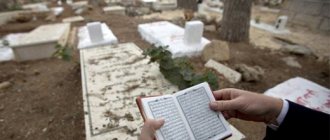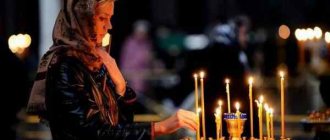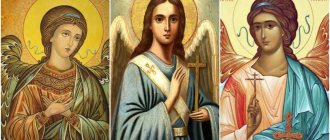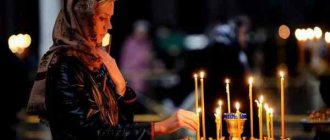On the ninth day following Easter, Radonitsa is celebrated, which in 2020 falls on April 28. And this is also one of the parents' days. At first it was a pagan holiday, the name of which comes from Radonitsa - these are ancestral deities that were revered by the ancient Slavs. They, among other things, protected the dead. People made offerings to them, holding feasts and thereby expressing their respect to the deceased.
With the advent of Christianity to our land, this tradition underwent some changes, but its essence in terms of commemorating the dead was preserved. Life has decreed that in 2022, due to the coronavirus epidemic, not all people will have the opportunity to go to church and the cemetery. Therefore, many are interested in the question of what prayers should be read at home for the repose of the souls of relatives.
Church traditions
On Radonitsa, divine services are held in Christian churches, during which priests read prayers for the deceased. This day is accompanied by memories of Jesus' descent into hell and the bringing out of the righteous from there. Thus, hell was destroyed and spiritual death was destroyed.
Therefore, the resurrection of the Savior, having conquered death, must supplant the sadness of separation from relatives. And the church sends a call to believers so that they do not indulge in deep sorrow for the departed. Usually, before offering prayer for departed relatives, people take communion.
The habit of getting married: Ravshana Kurkova and her 4 spouses
“It’s really expensive”: Vasilisa Volodina announced the cost of an hour of her consultation
It’s not only fraught with heartburn: why you shouldn’t eat mustard often
Before the start of the funeral liturgy, believers place notes in special vessels containing the names of their relatives and friends, or these notes are handed over to the clergyman. During the proskomedia, before the liturgy, the latter prepares bread and wine for the Eucharist. And then, as a symbol of cleansing from the sins of the deceased, a small piece of special prosphora is dropped into the bowl intended for the Holy Gifts.
What prayer for the deceased can be read at home on Radonitsa
Prayers are the only way to help the deceased. On Radonitsa, they light a candle at the graves, pray, and mentally talk to their deceased relatives.
Remember, O Lord our God, in the faith and hope of the eternal life of Your departed servant, our brother (name), and as Good and Lover of mankind, forgiving sins and consuming untruths, weaken, forsake and forgive all his voluntary and involuntary sins, deliver him eternal torment and fire of Gehenna, and grant him the communion and enjoyment of Your eternal good things, prepared for those who love You: even if you sin, do not depart from You, and undoubtedly in the Father and the Son and the Holy Spirit, Your glorified God in the Trinity, Faith, and Unity in the Trinity and the Trinity in Unity, Orthodox even until his last breath of confession. Be merciful to him, and faith, even in You instead of deeds, and with Your saints, as You give generous rest: for there is no man who will live and not sin. But You are the One besides all sin, and Your righteousness is righteousness forever, and You are the One God of mercies and generosity, and love for mankind, and to You we send glory to the Father and the Son and the Holy Spirit, now and ever, and to the ages of ages. Amen.
According to church traditions, praises to the Lord are read first:
Through the prayers of the saints, our fathers, Lord Jesus Christ our God, have mercy on us. Amen.
Glory to Thee, our God, glory to Thee.
Heavenly King, Comforter, Soul of Truth, Who is everywhere and fulfills everything. Treasure of good things and life to the Giver, come and dwell in us, and cleanse us from all filth, and save, O Blessed One, our souls.
Holy God, Holy Mighty, Holy Immortal, have mercy on us. (Read three times, with the sign of the cross and bow from the waist.)
Glory to the Father and the Son and the Holy Spirit, now and ever and unto ages of ages. Amen.
Most Holy Trinity, have mercy on us; Lord, cleanse our sins; Master, forgive our iniquities; Holy One, visit and heal our infirmities, for Thy name's sake.
Lord have mercy. (Thrice.)
Glory to the Father and the Son and the Holy Spirit, now and ever and unto ages of ages. Amen.
Our Father, who art in heaven! Hallowed be Thy name, Thy kingdom come, Thy will be done, as it is in heaven and on earth. Give us this day our daily bread; and forgive us our debts, just as we forgive our debtors; and do not lead us into temptation, but deliver us from the evil one.
Lord have mercy. (12 times.)
Come, let us worship our King God. (Bow.)
Come, let us worship and fall down before Christ, our King God. (Bow.)
Come, let us bow and fall down to Christ Himself, the King and our God. (Bow.)
Then lithiums to remember the departed:
Christ rose from the dead, trampling down death by death and giving life to those in the tombs (three times).
Resurrection day, let us enlighten people: Easter, the Lord's Easter! From death to life, and from earth to heaven, Christ God has led us, singing in victory.
Christ is risen from the dead.
Come, let us drink new beer, which does not work miracles from a barren stone, but an incorruptible source from the tomb of Christ, in whom we are established.
Christ is risen from the dead.
On divine watch, may the God-speaking Habakkuk stand with us and show us a luminous angel, clearly saying: today is salvation for the world, for Christ has risen, for he is omnipotent.
Christ is risen from the dead.
Let us morning the deep morning, and instead of peace we will bring a song to the Lady, and we will see Christ, the Sun of Truth, life shining for all.
Christ is risen from the dead.
Thou hast descended into the underworld of the earth and shattered the eternal faiths that contain the bound ones, Christ, and thou hast risen from the grave for three days, like Jonah from the whale.
Lord have mercy (three times)
Kontakion, tone 8:
With the saints, rest, O Christ, the soul of Thy servant (slave, soul servant) of Thy (Thy, Thine), where there is no sickness, no sorrow, no sighing, but endless life.
Easter Kontakion, tone 8:
Even though you descended immortally into the grave, you destroyed the power of hell, and you rose again as a conqueror, Christ God, saying to the myrrh-bearing women: Rejoice, and grant peace to your apostles, grant resurrection to the fallen.
He who delivered the youths from the cave, having become a man, suffers as if he were mortal, and with the passion of death he clothes the mortal in incorruptibility with splendor. God alone is blessed and glorified by the fathers.
Christ is risen from the dead.
This is the appointed and holy day, one Sabbath King and Lord, a feast of feasts, and a triumph is a triumph: let us bless Christ forever.
Christ is risen from the dead.
The angel cried out with the Most Grace: Pure Virgin, rejoice, and again the river: rejoice; Your Son is risen three days from the grave, and having raised the dead, people rejoice.
Shine, shine, new Jerusalem, for the glory of the Lord is upon you. Rejoice now, and rejoice in Zion. You are Pure, rejoice, O Mother of God, about the rise of Your Nativity.
Having fallen asleep in the flesh as if dead, Thou art the King and Lord, who rose for three days, raised Adam from aphids, and abolished death: Easter incorruptibility, the salvation of the world (twice).
The following prayer is read for the repose of parents:
Lord Jesus Christ our God! You are the keeper of the orphans, the refuge of the grieving and the comforter of the weeping. I come running to you, an orphan, groaning and crying, and I pray to you: hear my prayer and do not turn your face away from the sighs of my heart and from the tears of my eyes. I pray to You, merciful Lord, satisfy my grief over separation from my parent (my mother), (name) (or: with my parents who gave birth and raised me, their names) - , and his soul (or: her, or: them), as having gone (or: gone) to You with true faith in You and with firm hope in Your love for mankind and mercy, accept into Your Kingdom of Heaven. I bow before Your holy will, which was taken away (or: taken away, or: taken away) from me, and I ask You not to take away from him (or: from her, or: from them) Your mercy and mercy. We know, Lord, that You are the Judge of this world, you punish the sins and wickedness of the fathers in children, grandchildren and great-grandchildren, even to the third and fourth generation: but you also have mercy on the fathers for the prayers and virtues of their children, grandchildren and great-grandchildren. With contrition and tenderness of heart, I pray to Thee, merciful Judge, do not punish with eternal punishment the unforgettable deceased (unforgettable deceased) for me Thy servant (Thy servant), my parent (my mother) (name), but forgive him (her) all his sins ( her) voluntary and involuntary, in word and deed, knowledge and ignorance, created by him (her) in his (her) life here on earth, and according to Your mercy and love for mankind, prayers for the sake of the Most Pure Mother of God and all the saints, have mercy on him (her) and eternal save me from torment. You, merciful Father of fathers and children! Grant me, all the days of my life, until my last breath, not to cease to remember my deceased parent (my deceased mother) in my prayers, and to beg Thee, the righteous Judge, to order him in a place of light, in a place of coolness and in a place of peace, with all the saints, from nowhere all sickness, sorrow and sighing have fled. Merciful Lord! Accept this day for Thy servant (Your) (name) my warm prayer and give him (her) Your reward for the labors and cares of my upbringing in faith and Christian piety, as He taught (taught) me first of all to lead You, my Lord, in reverently pray to You, trust in You alone in troubles, sorrows and illnesses and keep Your commandments; for his (her) concern for my spiritual progress, for the warmth of his (her) prayer for me before You and for all the gifts he (she) asked me from You, reward him (her) with Your mercy. Your heavenly blessings and joys in Your eternal Kingdom. For You are the God of mercies and generosity and love for mankind, You are the peace and joy of Your faithful servants, and we send glory to You with the Father and the Holy Spirit, now and ever and unto the ages of ages. Amen.
Of course, it is impossible not to miss a person, but a special prayer will help “not to be heartbroken”:
Living in the help of the Most High, he will settle in the shelter of the Heavenly God. Says the Lord: Thou art my Protector and my Refuge. My God, and I trust in Him. For He will deliver you from the snare of the trap, and from rebellious words, His splash will overshadow you, and under His wing you hope: His truth will surround you with weapons. Do not be afraid from the fear of the night, from the arrow that flies during the day, from the thing that passes in darkness, from the cloak, and from the demon of the midday. Thousands will fall from your country, and darkness will fall at your right hand, but it will not come close to you, otherwise you will look at your eyes, and you will see the reward of sinners. For You, O Lord, are my hope, You have made the Most High your refuge. Evil will not come to you, and wound will not approach your body, as His Angel commanded you to keep you in all your ways. They will lift you up in their arms, but not when you dash your foot on a stone, step on an asp and a basilisk, and cross a lion and a serpent. For I have trusted in Me, and I will deliver, and I will cover, and because I have known My name. He will call to Me, and I will hear him: I am with him in sorrow, I will overcome him, and I will glorify him, I will fill him with long days, and I will show him My salvation.
Glory to the Father and the Son and the Holy Spirit, now and ever and unto ages of ages. Amen.
Alleluia, Alleluia, Alleluia, glory to Thee, O God (three times).
From the spirits of the righteous who have passed away, rest the soul of Your servant, O Savior, preserving it in the blessed life that belongs to You, O Lover of Mankind.
In Thy resting place, O Lord, where Thy holiness rests, rest also the soul of Thy servant, for Thou art the only Lover of mankind.
Glory to the Father and the Son and the Holy Spirit: You are God, who descended into hell and loosed the bonds of those who were bound. May you and your servant rest in peace.
And now and ever and unto ages of ages. Amen: One Pure and Immaculate Virgin, who gave birth to God without a seed, pray for his soul to be saved.
This prayer is read at the grave, they stand at it for some time, extinguish the candle and, returning home, give out alms.
What is not recommended to do on Radonitsa?
It is customary on this day to put the graves in order, as well as to read prayers in the cemetery. During home funerals, such a ritual dish as kutia is served at the table. It is pre-blessed in the church or sprinkled with holy water. Tradition also requires eating pancakes on this day.
There is a common belief that the deceased should be remembered by drinking alcohol. But priests emphasize that this opinion is deeply erroneous. On the contrary, alcohol should be completely excluded.
Church ministers also remind us of the tradition of leaving Easter cakes and colored eggs on graves, which is a relic of pagan times. They urge believers not to do this. On Radonitsa, shouting, swearing, foul language, and bad comments about the deceased are also prohibited.
Paris Hilton and Lanvin: The model tried on classic minimalist looks
They became beauty icons in Arab countries: the most popular bloggers of the East
How to achieve the most natural color: five ways to highlight hair
The meaning of prayers for deceased parents
Radonitsa is a day of remembrance primarily for parents. You can remember a deceased person with prayer, a memorial meal, or alms. Prayer is a “thread” connecting the world of the living with the other world. You can pray for the departed any day, at any time. Prayer helps the soul of the deceased.
The tradition of remembering the dead at home has existed since ancient times. In memory of departed loved ones, it is customary to regularly read the Psalter. The commemoration of the living and the dead is part of the morning prayer rule. And although, of course, there is no more effective prayer than the one pronounced in a low voice by the priest during the Sacrament of the Eucharist
Time and features of church service
The service on Radonitsa is especially solemn
Starting from the last weeks of Great Lent and up to St. Thomas Week, no funeral services are held in the church. Strictly speaking, at this time - and especially during the 9 days from Easter Sunday - it is considered in principle unacceptable to perform actions related to death: reading funeral prayers, tidying up graves, commemorating... Easter, which embodies the triumph of life, does not fit in. with sad thoughts that invariably evoke sorrowful activities.
But after this period, the dead are paid tribute at the Great Requiem Service, which not only remembers those who have passed on to another world, but also, as it were, includes them in the circle of the living, calls on them to take part in the most important holiday for Christians, emphasizing: separation is temporary, but the future life is infinite.
There are two services dedicated to this event.
The first takes place on Monday, which is logical if you remember: in the church time system, the day begins not in the morning, but in the evening. So parishioners who do not have the opportunity to join the service during Radunitsa itself can do so with peace of mind the day before at the end of the working day, since that is when the holiday begins.
Memorial services are allowed to be celebrated on Monday of St. Thomas Week
However, in recent years, the leadership of many regions in Russia has been meeting the believers halfway and declaring Tuesday of St. Thomas Week an official day off, so most Christians try to take part in the second and main solemn service in the church - in the morning on Radonitsa. It begins, as it should be, with the Liturgy, and ends with the Great Requiem Service, at which the priest, in particular, lists the names of the deceased given to him on pieces of paper, praying for their souls together with the friends and relatives present in the church.
If this year you are thinking about attending a memorial service for the first time, keep in mind: exactly what time the service in the church will begin on Radonitsa depends on the charter and customs of the individual church. To avoid getting into trouble, check the schedule of services in advance - fortunately, nowadays almost every church has a page on the Internet.
Prayer on Parents' Saturday for the deceased at home read the text on October 9, 2021 before the Intercession
There are several parental Saturdays throughout the year when Christians are remembered. Before the Intercession it is called Pokrovskaya. In churches you can leave notes with the names of deceased relatives, perform a memorial service, and light candles for the repose.
Parental Saturdays occupy a special place in the Orthodox church calendar. These are days dedicated to remembering the dead. They are held before major church holidays. Intercession Parents' Saturday is celebrated on October 9, 2022. Traditionally, people visit temples to pray for their deceased loved ones. However, it is not always possible to go to church. In this case, praying on Parents' Saturday for the deceased at home in front of the icons will help.
How to remember at home
You can remember the deceased on Radonitsa with prayer and alms at home. The people have a tradition of lighting candles and the custom of preparing a funeral meal with alcoholic beverages. There is nothing wrong with the custom of putting the best dishes on the table. However, the church urges people to give up alcohol on the day of remembrance.
A person can lose control of himself, commit rash acts, and say careless words. Such actions will disrupt the atmosphere of a special day and the order of remembrance. The best way to remember at home is considered to be prayers and reading religious texts.
Why do they read prayers on Parents' Saturday?
Priests talk about the importance of sincere prayer. This is exactly what the soul of the deceased needs, who is no longer able to change his fate. Only the relatives and friends of the deceased can beg for him a pass to the Kingdom of Heaven.
There is an opinion among the people that supposedly children who do not pray for their deceased parents experience anxiety. The dead can come to them in dreams. Peace of mind returns after sincere prayers. This is why it is important to pray on Parents’ Saturdays.
History of the holiday - Intercession Parents' Saturday
Parents' Saturday of Intercession was established in honor of the soldiers who died in the battle of Kazan. The battles took place back in 1552 during the reign of Tsar Ivan the Terrible.
The dead soldiers were buried near the Kazan Kremlin. Today there is a monument to the Image of the Savior Not Made by Hands.
Only some dioceses celebrate Mother's Saturday of the Intercession:
- Kazan;
- Vyatskaya;
- Izhevsk;
- Ekaterinburgskaya.
Belarusians also have a similar holiday. They call it “Pokrovsky Dzyady”.
Parishioners of Orthodox churches believe that the souls of the dead visit the homes of loved ones, so they prepare a funeral dinner. Kutya, which is considered a ritual dish, is placed on the table. Raisins, poppy seeds and honey are added to the cereal.
Prayer for deceased parents
RITE OF LITHIA PERFORMED BY A LAYMAN AT HOME AND IN THE CEMETERY
Through the prayers of the saints, our fathers, Lord Jesus Christ our God, have mercy on us. Amen. Glory to Thee, our God, glory to Thee. Heavenly King, Comforter, Soul of Truth, Who is everywhere and fulfills everything. Treasure of good things and life to the Giver, come and dwell in us, and cleanse us from all filth, and save, O Blessed One, our souls. Holy God, Holy Mighty, Holy Immortal, have mercy on us. (Read three times, with the sign of the cross and a bow from the waist.) Glory to the Father and the Son and the Holy Spirit, now and ever and unto ages of ages. Amen. Most Holy Trinity, have mercy on us; Lord, cleanse our sins; Master, forgive our iniquities; Holy One, visit and heal our infirmities, for Thy name's sake. Lord have mercy. (Three times.) Glory to the Father and the Son and the Holy Spirit, now and ever and unto ages of ages. Amen. Our Father, who art in heaven! Hallowed be Thy name, Thy kingdom come, Thy will be done, as it is in heaven and on earth. Give us this day our daily bread; and forgive us our debts, just as we forgive our debtors; and do not lead us into temptation, but deliver us from the evil one. Lord have mercy. (12 times.) Come, let us worship our King God. (Bow.) Come, let us bow and fall down to Christ, our King God. (Bow.) Come, let us bow and fall down to Christ Himself, the King and our God. (Bow.)
Radonitsa
The entire Easter week is dedicated to the celebration of the Holy Resurrection of Christ. At this time, funerals are not allowed either in churches or in cemeteries. Starting from the second week, visits to temples and churches are resumed, you can write notes for the repose of your soul, perform liturgy and remember the dead. Many people request that the priest read a prayer in the name of the departed.
After this, people go to cemeteries, where they commemorate them with prayers and an accompanying meal at the graves of their relatives.
German Shepherd and Shih Tzu are at risk: which dogs are susceptible to obesity
“Once every couple of months I choose a favorite”: an Australian shared his education system
Scientists have discovered 55 previously unknown chemicals in the human body
How to help the deceased
The question may arise: is a commemoration necessary for those who have passed on to another world? They are no longer with us, will there be any benefit from the rites of remembrance? Everyone answers these questions differently.
The Church Charter gives an unequivocal answer to these questions. It is imperative to remember a loved one, give alms, and pray. Some people say that relatives perform these funeral rites for themselves, to escape from sorrowful thoughts, to console themselves. There is a certain amount of truth in this.
However, a wake also has meaning for the soul of someone who has passed on to another world. Rituals connect the other world with man and become the only possible channel of communication. A wake is the only possible help to the soul of the deceased, so the main attention should be paid to its spiritual part.
Russian Orthodox Church
On Tuesday of the second week of Easter (in 2008 - May 6), which is called the Week of Thomas, the Orthodox Church celebrates Radonitsa - the day of special remembrance of the dead, the first after Easter.
According to the testimony of St. John Chrysostom (IV century), this holiday was celebrated in Christian cemeteries already in ancient times.
Etymologically, the word “radonitsa” goes back to the words “kind” and “joy”, and the special place of Radonitsa in the annual circle of church holidays - immediately after Easter Week - seems to oblige Christians not to delve into worries about the death of loved ones, but, on the contrary, to rejoice their birth into another life - eternal life. The victory over death, won by the death and resurrection of Christ, displaces the sadness of temporary separation from relatives, and therefore we, in the words of Metropolitan Anthony of Sourozh, “with faith, hope and Easter confidence, stand at the tombs of the departed.”
It is on Radonitsa that there is a custom of celebrating Easter at the graves of the departed, where colored eggs and other Easter dishes are brought, where a funeral meal is served and part of what is prepared is given to the poor brethren for the funeral of the soul. This real, living, everyday communication with the departed reflects the belief that even after death they do not cease to be members of the Church of That God, Who “is not the God of the dead, but of the living” (Matthew 22:32).
The now widespread custom of visiting cemeteries on the very day of Easter contradicts the most ancient institutions of the Church: until the ninth day after Easter, commemoration of the dead is never performed. If a person dies on Easter, then he is buried according to a special Easter rite. Easter is a time of special and exceptional joy, a celebration of victory over death and over all sorrow and sorrow.
How the dead are remembered on Easter
On Easter, many people visit the cemetery where the graves of their loved ones are located. Unfortunately, in some families there is a blasphemous custom of accompanying these visits to the graves of their relatives with wild drunken revelry. But even those who do not do so often do not know when on Easter days it is possible and necessary to remember the dead.
The first commemoration of the dead takes place on the second week, after St. Thomas Sunday, on Tuesday.
The basis for this commemoration is, on the one hand, the remembrance of the descent of Jesus Christ into hell, connected with the Resurrection of St. Thomas, and, on the other, the permission of the Church Charter to carry out the usual commemoration of the dead, starting with St. Thomas Monday. According to this permission, believers come to the graves of their loved ones with the joyful news of the Resurrection of Christ, hence the day of remembrance itself is called Radonitsa.
How to behave in a cemetery
Arriving at the cemetery, you need to light a candle and perform a lithium (this word literally means intense prayer. To perform the rite of lithium when commemorating the dead, you need to invite a priest. If you wish, you can read an akathist about the repose of the dead.
Then clean up the grave or simply remain silent and remember the deceased. There is no need to eat or drink in a cemetery; it is especially unacceptable to pour vodka on a grave mound - this insults the memory of the dead. The custom of leaving a glass of vodka and a piece of bread at the grave “for the deceased” is a relic of paganism and should not be observed in Orthodox families.
There is no need to leave food on the grave; it is better to give it to the beggar or the hungry.
How to treat the grave of an Orthodox Christian
Cemeteries are sacred places where the bodies of the dead are buried until a future resurrection. Even according to the laws of pagan states, tombs were considered sacred and inviolable.
From deep pre-Christian antiquity there is a custom of marking a burial place by building a hill above it. Having adopted this custom, the Christian Church decorates the grave mound with the victorious sign of our salvation - the Holy Life-Giving Cross, inscribed on the tombstone or placed above the tombstone.
We call our dead departed, not deceased, because at a certain time they will rise from the grave.
The grave is the place of the future resurrection, and therefore it is necessary to keep it clean and orderly.
The cross on the grave of an Orthodox Christian is a silent preacher of blessed immortality and resurrection. Planted in the ground and rising to the sky, it signifies the faith of Christians that the body of the deceased is here in the earth, and the soul is in heaven, that under the cross is hidden a seed that grows for eternal life in the Kingdom of God.
The cross on the grave is placed at the feet of the deceased so that the Crucifix is facing the face of the deceased. We must especially ensure that the cross on the grave is not askew, that it is always painted, clean and well-groomed. A simple, modest cross made of metal or wood is more appropriate for the grave of an Orthodox Christian than expensive monuments and tombstones made of granite and marble.
How to properly remember the dead
“We will try, as much as possible, to help the departed, instead of tears, instead of sobs, instead of magnificent tombs - with our prayers, alms and offerings for them, so that in this way both they and we will receive the promised benefits,” writes St. John Chrysostom.
Prayer for the departed is the greatest and most important thing we can do for those who have passed on to another world. By and large, the deceased does not need either a coffin or a monument - all this is a tribute to traditions, albeit pious ones. But the ever-living soul of the deceased experiences a great need for our constant prayer, because it itself cannot do good deeds with which it would be able to appease God. That is why prayer at home for loved ones, prayer in the cemetery at the grave of the deceased is the duty of every Orthodox Christian.
Commemoration in the Church provides special assistance to the deceased.
Before visiting the cemetery, one of the relatives should come to the church at the beginning of the service, submit a note with the name of the deceased for commemoration at the altar (it is best if this is commemorated at a proskomedia, when a piece is taken out of a special prosphora for the deceased, and then in a sign of the washing away of his sins will be lowered into the Chalice with the Holy Gifts). After the Liturgy, a memorial service must be celebrated. The prayer will be more effective if the person commemorating this day himself partakes of the Body and Blood of Christ.
Based on materials from the Ekaterinburg Orthodox newspaper
Almsgiving as help to the deceased
Giving alms is one of the best ways to properly remember the deceased. You can remember in this way by paying attention to single women with children, old people, orphans and providing them with all possible assistance. This will help them revive their faith in good deeds and the existence of the bright side of life.
It is allowed to be served to strangers and acquaintances all week after Radonitsa. Alms can be in the form of food, money, clothing, a good deed, i.e. any help a person needs. The priests believe that donations should be made to any people, without dividing them. However, in reality, there is often a fear that a person will use the help incorrectly and spend it on alcohol. In this case, it is better to give alms by setting the table, food, and providing other support.









